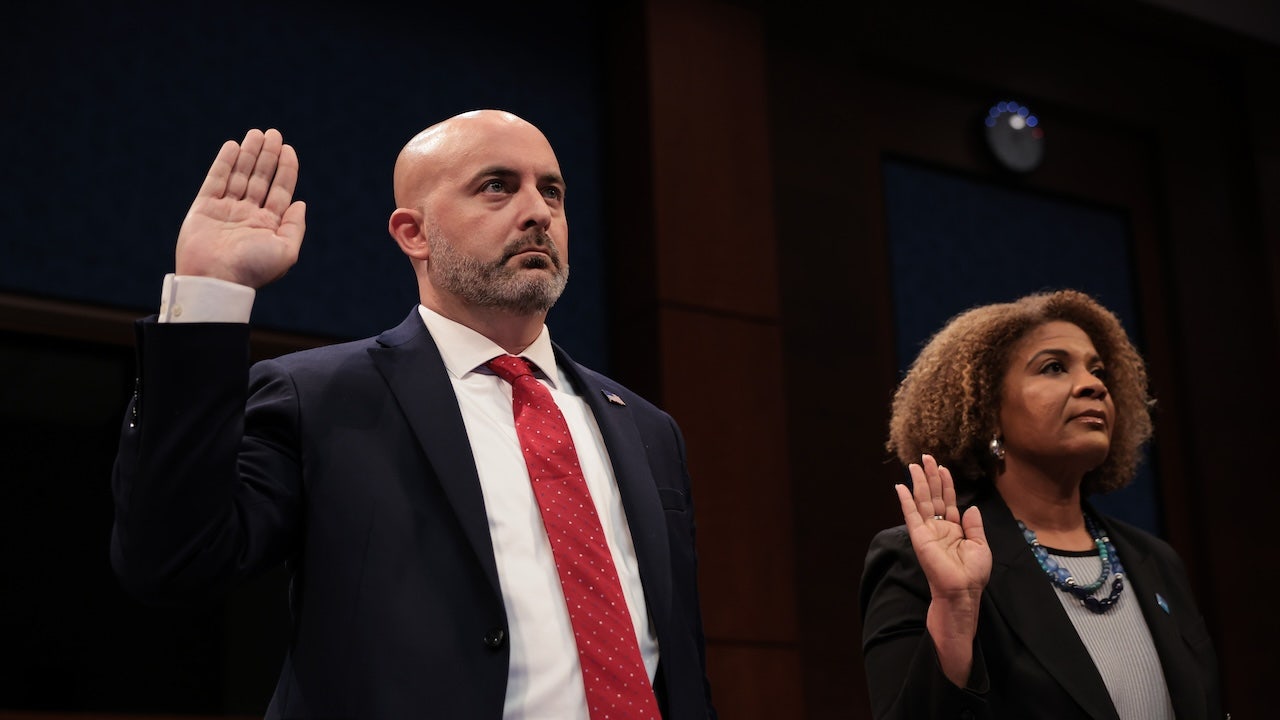Former US Olympic fencing team coach Andrey Geva has revealed to Fox News Digital the reasons behind his lawsuit against Damien Lehfeldt, the former chair of USA Fencing, following Lehfeldt’s contentious testimony during a congressional hearing held on May 7, 2025. The hearing, conducted by the Department of Government Efficiency (DOGE) subcommittee, focused on the participation of transgender athletes in women’s sports, a subject that has stirred significant controversy within the fencing community and beyond.
Recently, USA Fencing underwent a leadership change after Damien Lehfeldt announced over the weekend that he would not seek re-election as chair of the national governing body. In a formal statement released to Fox News Digital, USA Fencing confirmed that Scott Rodgers, a former U.S. wheelchair fencing Paralympian, was elected as the new chair on October 24. Rodgers is notable for being the first active athlete and the first parafencer to lead the USA Fencing Board. His term will continue through the Board’s Annual Meeting in the fall of 2027. The organization described Rodgers’ election as a reflection of its ongoing commitment to athlete-centered governance and the development of fencing at all levels. The statement also thanked Lehfeldt for his service, formally marking the conclusion of his tenure.
Lehfeldt’s decision to step down was largely influenced by the intense backlash he faced, citing "lawsuits" and "death threats" as key factors in his announcement. His tenure had been fraught with controversy since April, when Stephanie Turner, a women’s fencer, gained viral attention after kneeling in protest against competing with a transgender opponent, Payton McNabb, a former high school volleyball player. Turner’s protest led to her disqualification, sparking national debate over the participation of transgender athletes in women’s sports. This incident ultimately resulted in a federal subpoena compelling Lehfeldt to testify before Congress about USA Fencing’s policies on transgender athlete participation.
The controversy escalated when former Olympic coach and USA Fencing board member Andrey Geva, alongside former Olympic fencer Abdel Salem, filed a lawsuit against Lehfeldt. The plaintiffs accuse Lehfeldt of making false statements during his congressional testimony. Lehfeldt expressed in his resignation announcement that he did not anticipate the personal toll the controversies would take, stating, “I didn’t sign up to spend my nights and weekends dealing with lawsuits, death threats, and distractions that pull focus from the real work of governing and growing our sport.” He highlighted his desire to return to fencing, mentoring, and coaching without being embroiled in legal battles or public disputes.
Lehfeldt emphasized that the demands of his role, combined with his full-time job and family responsibilities, had left him exhausted. “Between my full-time job, young kids, and using nearly all my vacation days to volunteer, I’ve reached a point where I’m simply tired,” he said. Despite stepping down, Lehfeldt reiterated his commitment to inclusion within the sport, advocating for fencing to be accessible to everyone regardless of race, religion, gender, gender identity, or socioeconomic background. He described this inclusivity as more than just a slogan, but a genuine pledge to foster a welcoming community.
The congressional hearing itself was marked by several notable moments that intensified the controversy. Prior to the hearing, Lehfeldt made a series of posts on his Instagram Stories, one of which went viral. Responding to a question about whether he was comfortable with policies that might disadvantage female fencers, Lehfeldt replied bluntly, “Yeah.” During the hearing, he acknowledged that this answer was overly simplistic and expressed regret, stating that the issue required a more nuanced response.
In a particularly contentious moment, Lehfeldt admitted to fabricating an email from a fictitious character named “Dorothy,” purportedly a mother who opposed him. He compared those who shared Dorothy’s views to members of the Ku Klux Klan, even using the term “grand wizard.” Lehfeldt later described this as a “poor attempt at humor,” which drew criticism from lawmakers and observers alike.
Representative Tim Burchett, R-Tenn., pressed Lehfeldt on whether he would allow his own daughter to compete against a biological male athlete. Lehfeldt responded that he would, so long as the competitor met all hormonal requirements and complied with USA Fencing’s policies. He emphasized the organization’s commitment to safety precautions in such competitions.
Stephanie Turner, the fencer

